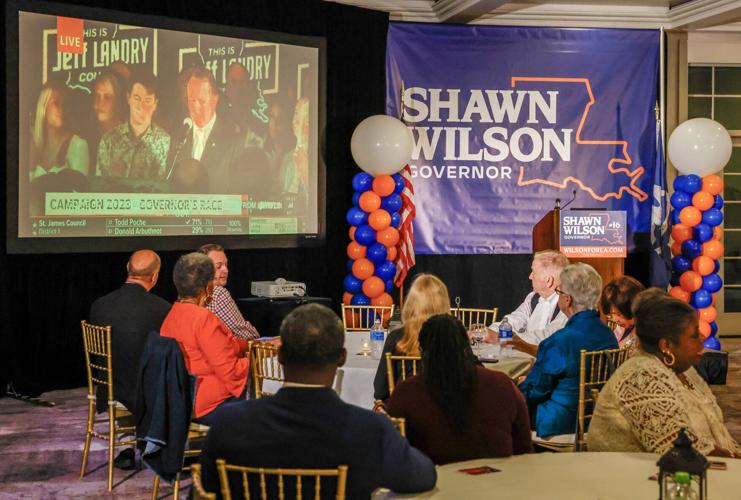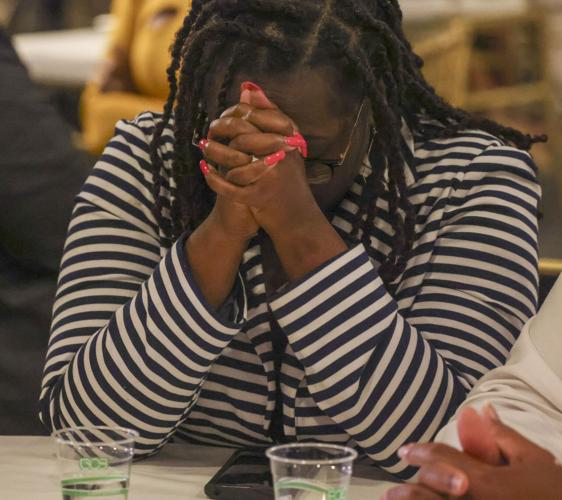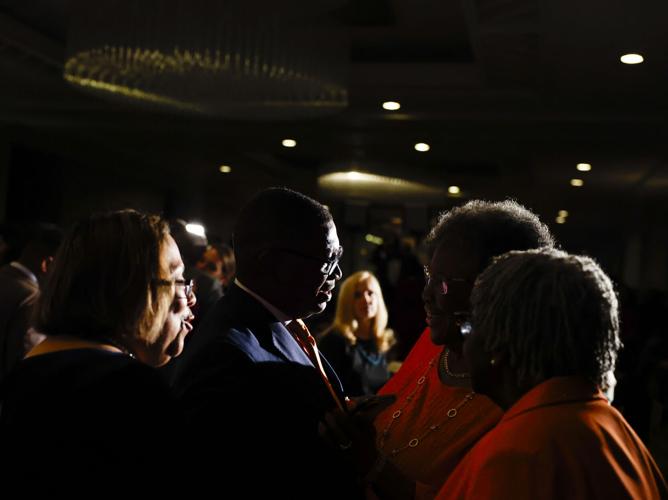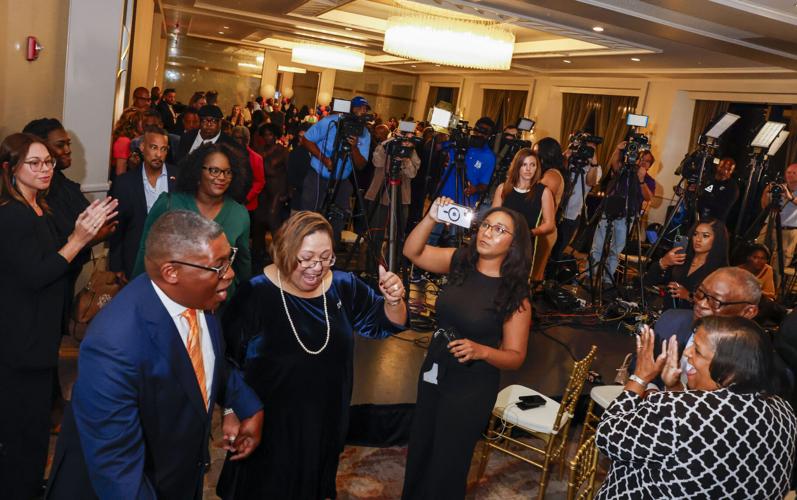The recent gubernatorial primary election opened a lot of eyes.
There weren't enough Black votes. There were defections among the Black folks who did vote. There were defections among Black Democratic leaders who chose to stand by rather than support Democratic gubernatorial candidate Shawn Wilson. There were defections among Black Democratic leaders who chose to publicly support Wilson but quietly engaged and assisted Jeff Landry, the front-running Republican gubernatorial candidate with whom they could play footsies and share part of a warm blanket the next four years.
And there simply wasn't enough Shawn Wilson enthusiasm.
In his own words, Wilson told me his campaign "was not a perfect campaign, but there were things beyond our control." The leading Democratic candidate cited not enough down-ballot races to pull voters out, not enough Democratic Party work the last several years to support any significant Democratic candidate and "a self-fulfilling prophecy that there's an automatic runoff with a Black candidate."
"The old moniker of race being stable in politics may not be reliable anymore," he added. He said his campaign loss shows that Democratic candidates cannot win statewide counting only on Caddo, East Baton Rouge and Orleans parishes where there are large numbers of Black voters.
Tyronne Walker, the Urban League of Louisiana's vice president for policy, strategic partnerships and development, regularly monitors state politics for the nonpartisan group that pushes voter education and voter turnout. He said voters shouldn't take the brunt of the blame and there's plenty of blame to go around. "It's the responsibility of campaigns to give voters a reason to turn out," he said. "We all have to do better."
Gary Chambers, a Baton Rouge activist and former Democratic congressional candidate and a former Democratic U.S. Senate candidate, blames the Louisiana Democratic Party for a lack of serious campaign support and get-out-the-vote organizing. He also blames Democratic National Committee adviser and former Congressman Cedric Richmond for not bringing more money to help Wilson. Richmond said the DNC sent $263,000, including $50,000 for communications and data support and $33,000 for technical and tools in-kind support. Chambers said it should've been millions.
Wilson didn't come close to making the Nov. 18 runoff.
"Republican voters did not divide. Republican undecideds went for Landry," added Wilson. "The Democratic undecideds did not vote."
And some Black voters made a different decision.
Black folks aren't all alike. They have different political desires, even if they wear the same Democratic stripes. Abortion, crime and gun rights divide some of us.
This month's election confirmed that. I checked with John Couvillon, political analyst, consultant and CEO of JMC Analytics and Polling, to be sure.
Statewide voter turnout was lower than normal, especially among Democrats and Black voters. Democratic Gov. John Bel Edwards got 91% of the Black vote in his 2019 primary. Wilson got 70%. Surprising to some, Landry aggressively went after the Black vote, and it worked.
Though Landry got 12% of the Black vote statewide, his margins were larger in some regions. "It was closer to 20% in Black rural areas," Couvillon said. Outside of more traditional Black voting bloc areas in Caddo, East Baton Rouge, Jefferson and Orleans parishes, Black voters often chose Landry.
State Sen. Katrina Jackson's district includes Democratic stronghold South Monroe in Ouachita Parish, and it also includes more rural Concordia, East Carroll, Madison, Morehouse, Richland and Tensas parishes. There was a 58%/41% Black/White voter turnout in that district, but Wilson beat Landry by only two percentage points.
In the Shreveport-area district represented by state Sen. Greg Tarver, Wilson got 49% and Landry got 34% of the Black vote. In the diverse Pineville-based district represented by state Sen. Jay Luneau, which includes Bienville, Grant, Jackson, Lincoln, Natchitoches, Rapides and Winn parishes, Wilson got 40% of the Black vote but Landry got 41%. In state Sen. Ed Price's Gonzales-based district — which includes Ascension, Assumption, Iberville, Lafourche, St. Charles, St. James, St. John the Baptist and West Baton Rouge — there was a 60/39 Black/White voter turnout, but Wilson won 49% of the Black vote and Landry won 29%.
Urban Orleans Parish, a 50/50 Black/White electorate with a progressive White base, had an abysmal turnout of 27%.
Black voters are like other voters in a number of ways. Most of them are not as engaged as we'd like them to be, and candidates, campaigns and political parties must find ways to make them care, to cause them to be concerned and to get them excited about why voting for a certain candidate and/or a certain party can improve their lives.
Wilson, national and Louisiana Democrats and Black elected officials didn't do that.
It's time for significant changes if Democrats want to win.













